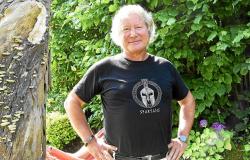ISpeaking during the 6th edition of the Morocco Halal Forum (FOHAM 2024), Mr. Taibi indicated that to facilitate Moroccan companies’ access to this label, IMANOR has established a protocol for the recognition of foreign halal certifiers allowing them in particular to issue halal certificates accepted for inputs foreign to products presented with the Halal Morocco Label.
He also noted that this label, which is mainly geared towards export, is seeking confirmation of recognition in foreign halal markets, adding that to this end, IMANOR is constantly seeking to conclude recognition agreements with its counterparts in foreign halal markets.
And to support: “We have been able to make significant breakthroughs in this direction with very important formal recognitions for our operators such as that of Malaysia, Saudi Arabia and recently the recognition with Singapore that we are making official today”.
At the same time, Mr. Taibi noted that despite these achievements, the Halal Morocco Label “shows us the image of a global halal market which is evolving in volume and requirements, and at the same time reveals more and more difficulties for our companies to access and maintain there”.
In this sense, the director of IMANOR insisted on the need to draw inspiration from the successful experiences of certain countries to organize the halal reference in Morocco, in particular through the establishment of a legal framework, taking into account in particular the mechanisms for recognizing certifiers in the countries of origin to give more credibility to the rules of access to the Moroccan market for products bearing Halal labels and benefit both consumers and Moroccan operators.
He also considered that the opportunities presented by the halal market for Moroccan companies require real awareness on the part of all parties concerned.
Organized under the aegis of the Ministry of Industry and Trade and the Ministry of Agriculture, Maritime Fisheries, Rural Development and Water and Forests, this forum was an opportunity to identify levers for integrated national and continental strategies, and to propose relevant approaches to capacity building and pooling of ideas, skills and resources in order to promote access for Moroccan products to the global halal market, and to stimulate and strengthen intra-African halal trade.
Bringing together 150 participants, this edition stands out for its regional dimension, particularly African, and highlights the importance of creating a halal ecosystem promoting the integration of African companies into global value chains with a view to better positioning on the global halal market.
(With MAP)





